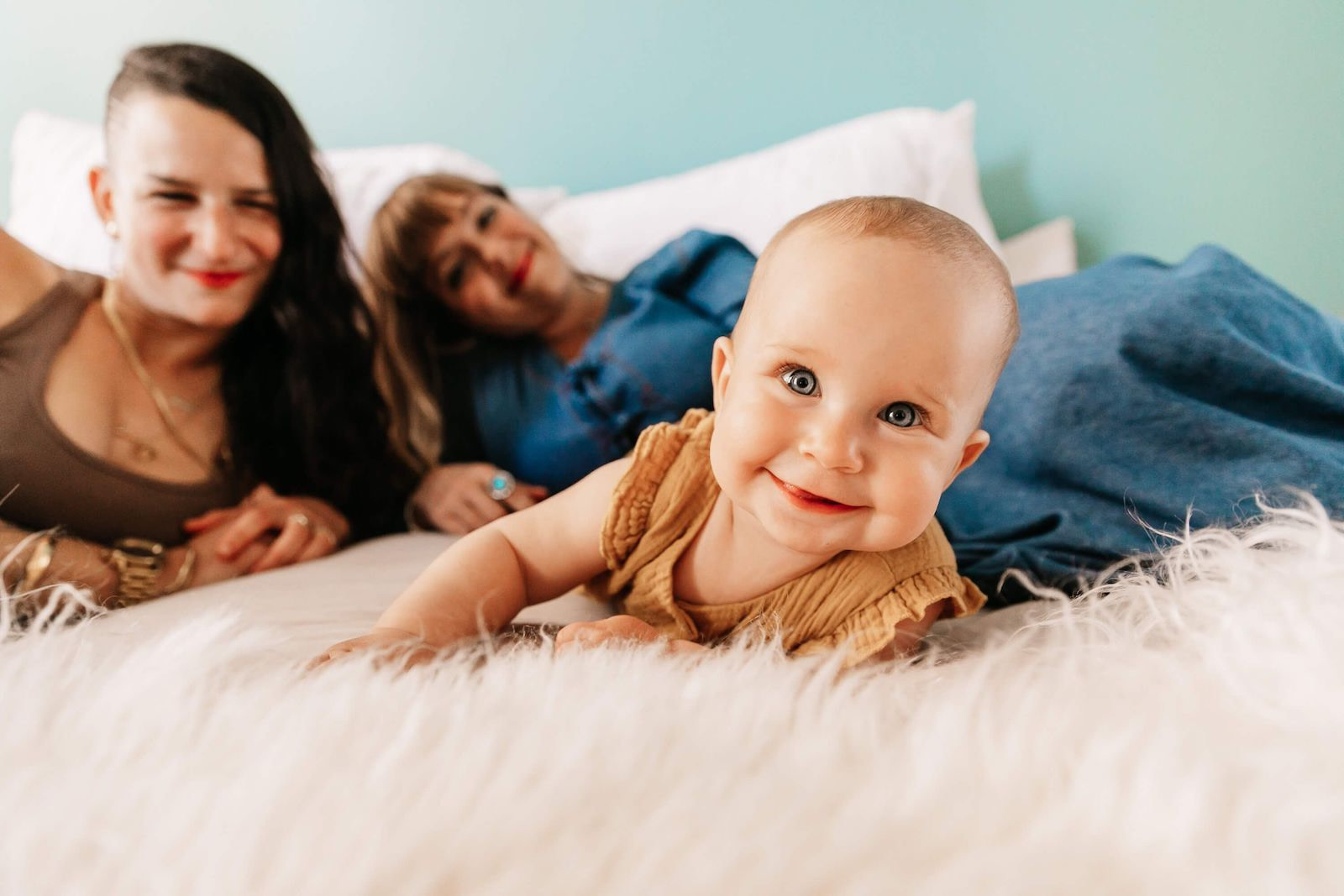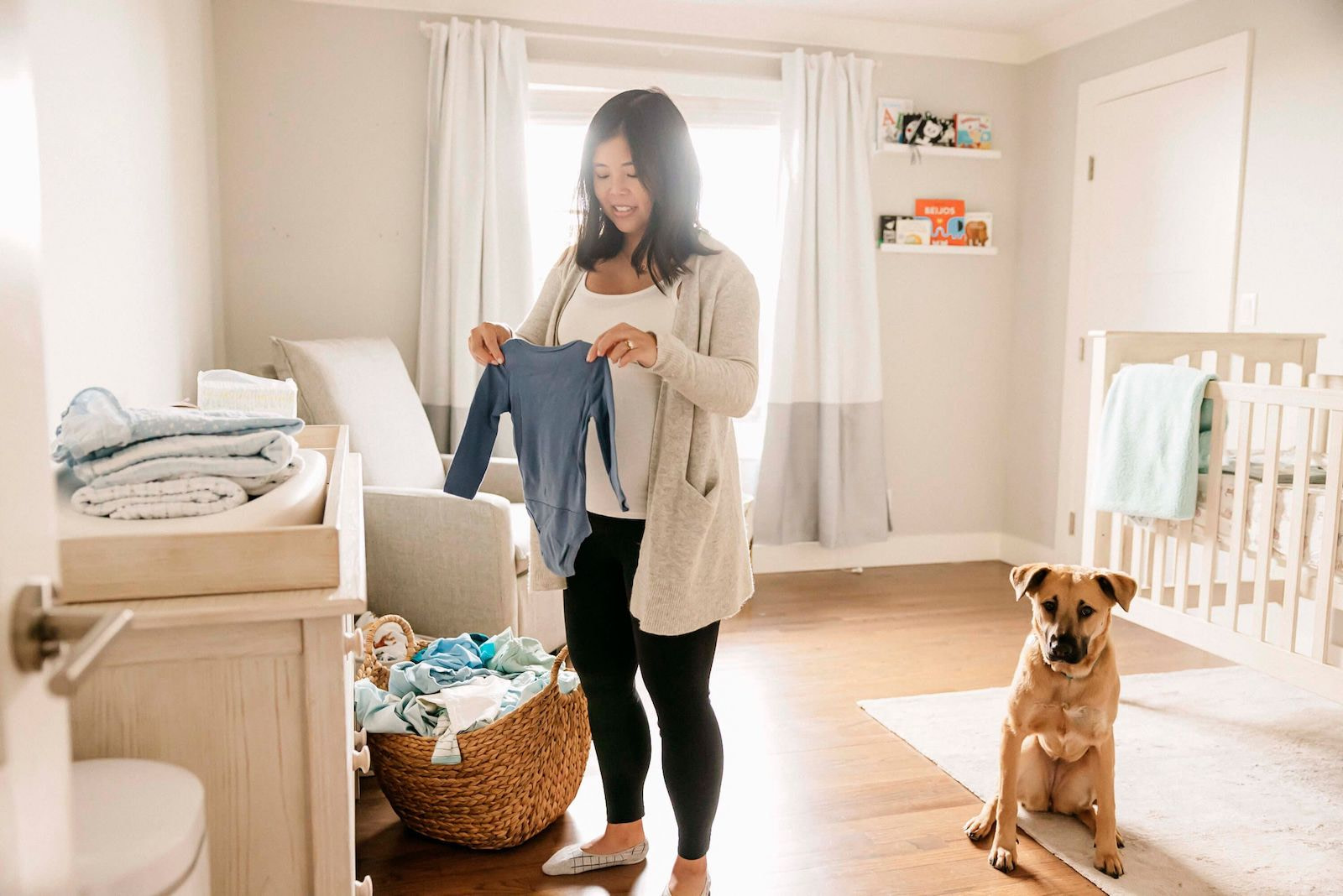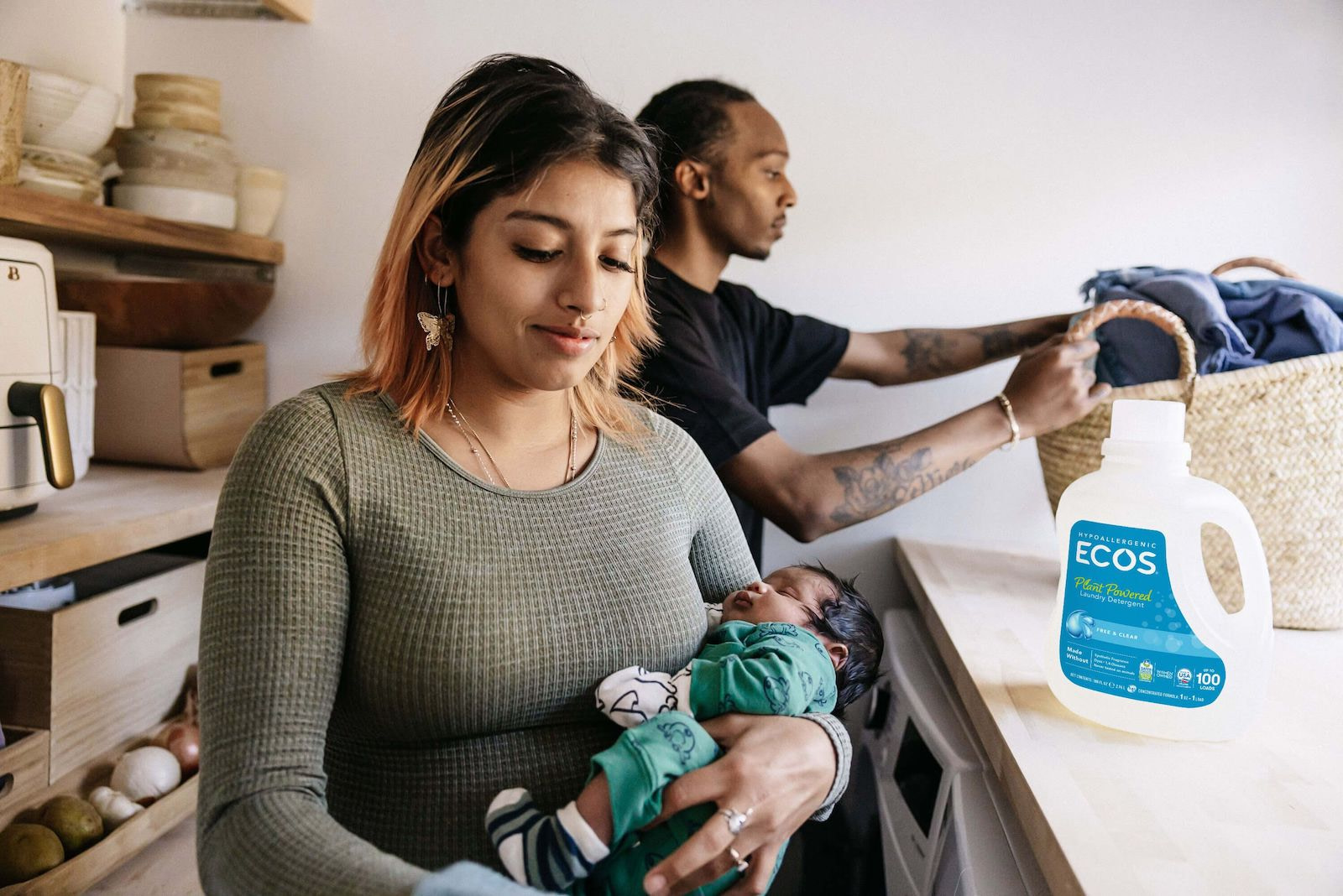Why and How Cloth Diapers Can Work for Your Baby
5 minute read

As a brand new parent, there’s a mountain of decisions you have to make before and after your baby arrives. John or Joanna? Home birth or hospital? One of the questions you’ve asked yourself is probably about using disposable or cloth diapers.
Like any other decision, you will weigh the pros and cons of both options. Whichever you pick, you want to make sure that the decision will work for your lifestyle and the well-being of your baby.
Cloth diapers definitely offer benefits over disposable diapers, but an understandable concern for some parents is the health of their baby and the additional workload of washing cloth diapers. The last thing a new parent wants is more work. We put together reasons to opt for cloth diapers, plus tips on how our ECOS Hypoallergenic Laundry Detergent is a safer choice laundry detergent for babies.

The Benefit of Opting for Cloth Diapers
Unlike their disposable counterparts, cloth diapers offer a slew of benefits that may make you consider them for your soon-to-arrive baby or make the switch if you’re already using disposable diapers.
1. Healthier Option
Firstly, cloth diapers do not carry the same EDCs, or endocrine-disruptive chemicals, such as phthalates. A study published in 2021 linked early life exposure to EDCs with “early puberty” in baby girls.1
Cloth diapers are a great hypoallergenic option, but you also want to consider a safer-choice laundry detergent for babies. Keeping your baby’s sensitive skin safe is a top priority; ECOS Hypoallergenic Laundry Detergent is made without dyes, 1,4-dioxane, or EDCs, making it a gentle and safer-to-use option.
2. Better for the Environment
It’s in the name, but we think it’s important to mention reusable diapers are better for the environment because you can reuse them! Something stinks and we think it’s this staggering statistic from the U.S. Environmental Protection Agency: Disposable diapers make up 4.1 million tons of municipal waste!2
3. Less Expensive
Cloth diapers are a one-time purchase, unlike single-use disposables. New parents are confronted with expenses from new clothes, bottles, toys, stroller, car seat, crib… the list goes on. Add disposable diapers into the equation and that could cost upwards of $2,500 more, depending on the number of diaper changes a day, by the time your baby is out of them!3
With cloth diapers, you’ll spend less money on the cost of supplies by washing and reusing them. As a bonus, if you plan on having another baby in the future, you may even be able to save and use them again with your next baby!

Washing Cloth Diapers
Your baby is precious. Their eyes, nose, smiles, adorable noises, and soft skin. As a parent, you want to protect their sensitive skin by picking a laundry detergent that doesn’t have harsh ingredients. ECOS Hypoallergenic Laundry Detergent uses a coconut-derived cleaner to break down odors and eliminate stubborn stains.
When washing your baby’s cloth diapers, follow these simple steps4 using our hypoallergenic laundry detergent:
- Remove any inserts if you are using pocket diapers.
- Use the highest water level allowed by your washing machine.
- Start off with a cold water rinse, no detergent yet.
- After the cold rinse, run the cloth diapers through a regular wash cycle on hot using pour 1 ounce for high-efficiency loads or 2 ounces for standard loads.
- If you have a particularly stubborn stain, pretreat the stain by pouring a few drops of laundry detergent directly on it, rub it in, and then put the cloth diapers into the washing machine.
- Depending on your preference, you can dry them on hot or hang them to dry.
Sometimes, if a laundry detergent isn’t enough, you need a tougher cleaner to remove stains without compromising on health. We recommend using ECOS OxoBrite® Multi-Purpose Stain Remover as a safer alternative to bleach. It’s a mineral-based stain remover that will help lift stains, brighten colors, and whiten whites.
New parents can use all the help they can get, especially with learning how to properly wash and care for their baby’s things. It takes a village, and we have helpful tips in our How to Wash Your Baby’s Clothes: A Guide blog article.
Pick the Best Option for You and Your Baby
Cloth diapers may be the healthier, environmentally safer, and more cost-effective choice for you and your baby. When it comes to their well-being, ECOS Hypoallergenic Laundry Detergent can relieve some of the worries about keeping your baby’s sensitive skin safer, wash after wash.
Learn about our complete line of safer laundry products to keep you, your baby, and your entire home safer and healthier.
Sources:
- Papadimitriou A, Papadimitriou DT. Endocrine-Disrupting Chemicals and Early Puberty in Girls. Children (Basel). 2021 Jun 10;8(6):492. doi: 10.3390/children8060492. PMID: 34200537; PMCID: PMC8226958.
https://www.ncbi.nlm.nih.gov/pmc/articles/PMC8226958/ - United States Environmental Protection Agency. Nondurable Goods: Product-Specific Data.
https://www.epa.gov/facts-and-figures-about-materials-waste-and-recycling/nondurable-goods-product-specific-data#DisposableDiapers - Consumer Reports. Cloth Diapers vs. Disposable Diapers: Getting Started.
https://www.consumerreports.org/cro/news/2009/07/cloth-vs-disposable-diapers-getting-started/index.htm - Parents.com. The Modern Parents Guide to Cloth Diapering.
https://www.parents.com/baby/diapers/cloth/the-modern-moms-guide-to-cloth-diapering/
